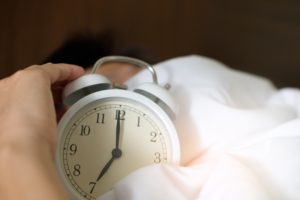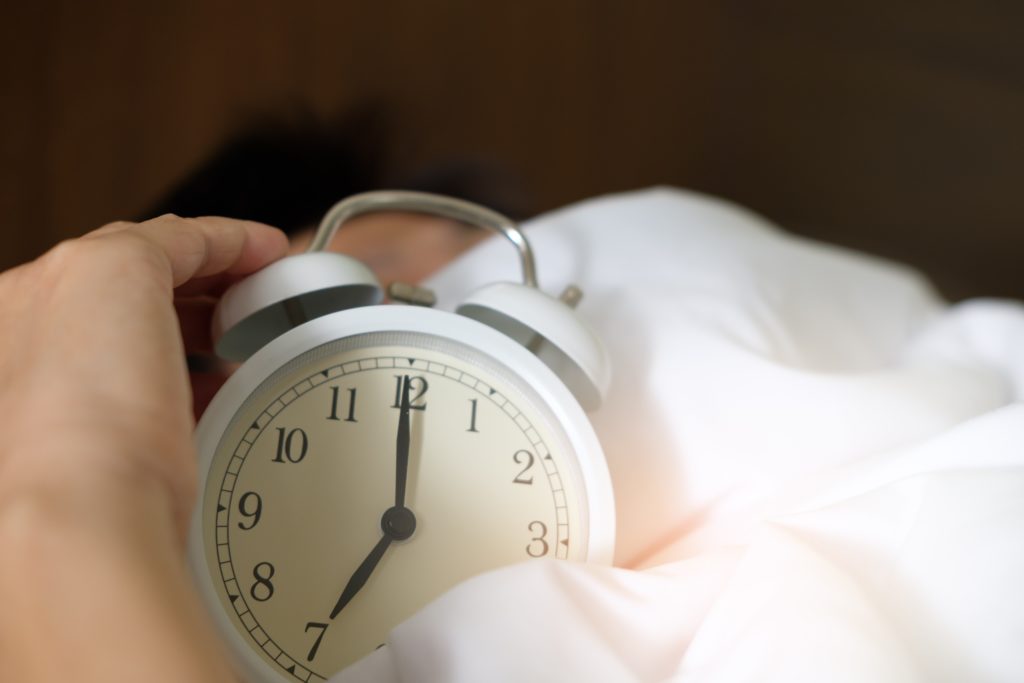 Feeling tired? Many of us are, or at least know what it is to work when fatigued. Some consider sleepless nights and pushing through fatigue to be an integral part of being a veterinary professional. It’s just part of the deal, something we all signed up for. But evidence is growing around sleep deprivation and its dangers. Sleep disruption isn’t just a matter of professional inconvenience or stamina. There are real risks.
Feeling tired? Many of us are, or at least know what it is to work when fatigued. Some consider sleepless nights and pushing through fatigue to be an integral part of being a veterinary professional. It’s just part of the deal, something we all signed up for. But evidence is growing around sleep deprivation and its dangers. Sleep disruption isn’t just a matter of professional inconvenience or stamina. There are real risks.
Disrupted sleep is, regrettably, a widespread issue throughout veterinary careers. Whether through staying up late studying, working through 24 hours or longer on call, or being unable to switch off for thinking about difficult clinical cases or practice management issues, it’s something we’ve all experienced. If it hasn’t happened to us personally, most of us will have heard stories of people who’ve had car crashes or near-misses while exhausted after demanding on calls. While such stories are often promoted as evidence of hard work, toughness and dedication to practice, in reality they represent the opposite: adequate sleep is a clinical safety issue. Furthermore, sleep has a huge impact on our personal wellbeing and mental health, and so whether our priority is personal wellbeing or optimising our ability to help others, it is crucial that we pay attention to ensuring good quality sleep.
The effects of disturbed sleep and fatigue
Dr Michael Farquhar from the Department of Children’s Sleep Medicine at the Evelina London Children’s Hospital, published a paper for paediatricians which has relevance for veterinary professionals too. In it he describes the impact of sleep disruption in stark terms.1 Disturbed sleep, such as that experienced by veterinary professionals with our night working responsibilities, can cause increased risk of cardiovascular disease, diabetes and obesity, impaired cognitive function, impaired emotional regulation, and more. Fatigue is also thought to account for up to 20% of road traffic accidents, and accidents relating to sleep are more likely to result in serious harm or death.
Sleep is also a safety issue for our patients. Moderate sleep deprivation, which can be incurred by just 16-18 hours awake, can leave us with reaction times similar to those of being twice over the drink drive limit. We wouldn’t operate drunk, so why our profession’s bravado about working without sleep?
Debates about veterinary professionals’ out of hours responsibilities have reflected concern in the profession about the impact of our 24 hour duty to animals under our care, but also a profound commitment to animal welfare, sometimes at the expense of our own. This culture of self-sacrifice is well intentioned, but flawed. We are not the only ones who stand to suffer if we are sleep deprived.
Some locations and types of veterinary work present particular challenges. The evidence for the harm caused by sleep disruption is compelling, but so are accounts from veterinary professionals who have dedicated their lives to rural communities and other types of veterinary work with few choices for help with night cover. Vets and nurses in these situations have described being faced with no one to help them, but a duty to help others. They don’t feel they have a choice. The profession needs to continue the conversation about the realities of veterinary work and responsibilities, and listen to these accounts.
Finding the balance
Is there a balance? A way to cover night work and not be impaired by fatigue? Evidence suggests there are things that can help. Some of us may have more choices than others about shift patterns, staffing, and facilities, but there are things that we can all do. In Dr Farquhar’s paper, he talks about ways to prepare for night working, including the concept of sleep-banking. He also describes using light-exposure to improve wakefulness while working at night. Light exposure may also help to reduce sleep-inertia – that period between waking from sleep, and good decision making, during which we unfortunately also often need to answer the out of hours phone.
Attention to sleep when on-call starts with attention to a good sleeping routine. General tips for good sleep include developing a routine on the way home from work which helps you to switch off and leave work behind, and a bedtime routine which helps you wind down. ‘Banking’ sleep before on-calls by napping in the afternoon or early evening can help, and exercising earlier in the day can help encourage this. It’s also important to stay hydrated and nourished. Avoid junk food if possible – it might feel right at the time but night working is associated with weight gain.
When getting up to work overnight, exposing yourself to bright light first thing can help ensure wakefulness for driving. It’s important to take advantage of any natural breaks overnight to take naps. Even when there’s so much work it’s hard to take breaks, it is important to stop and take 15-20 minutes for a break or short nap. This will help maintain your concentration and efficiency far more than “pushing through” without a break. As the night goes on you may find a dip in your concentration around 3-4am; at this time it’s important to test whether you’re safe to drive, double check any calculations, ask for help if necessary and question whether any non-emergency tasks or procedures would be safer deferred until daytime.
Beyond clinical safety, safe driving is a crucial issue for on-call practice. If at any time you feel too tired to drive or at risk of dozing off behind the wheel, do not drive. If you have already set off, find somewhere safe to pull over and rest/nap in your car. This issue is foreseeable for all of us and it is important to think in advance about backup and who you can call for help when it occurs. After a busy on-call where you have had no sleep you should also consider your clinical safety and need for rest when working the following day.
Think about what routine work is scheduled the day after a night on call, and if you are too tired to work, any commitments should be deferred: clients would prefer this over the risk of you making an error as a result of fatigue.
Once your on-call or night duties are finished, it can take at least two nights to re-establish a normal sleep pattern. Although it’s tempting to spend the whole day in bed after your last night duty, it’s more helpful to have a 1-2 hour morning nap, then get up and have a normal a day as possible before resuming your usual bedtime routine that night.
It’s worth briefly mentioning drugs. Judicious use of caffeine can help promote wakefulness overnight, but if you find that you can’t get off to sleep when you need to then you might have overdone it. Using alcohol or sleeping tablets to promote sleep might feel helpful in the short term, but they tend to worsen sleep in the long term and so ideally should be avoided or used under medical supervision only.
What to do if you’re struggling
Finally, a few words about what to do when you’re struggling with sleep or on call working and self-care isn’t enough. It’s more common than you might think for vets to experience sleeping problems and it’s important to ask for help. Insomnia can be a warning sign for deteriorating mental health. If it doesn’t get better then you can ask your GP for help. On-call working can also worsen existing health conditions and all workers are entitled to health-related reasonable adjustments at work. If you find that this is affecting you then do seek medical advice so you can discuss how to adjust your rota and on-call duties.
Reducing the risks of sleep disruption isn’t just an individual responsibility, there are things practices and employers can do too; facilities, shift patterns, and staffing are just a few of the considerations that could improve safety for veterinary staff who work at night, and for the patients who need them.
To make night working safer will require commitment from across the profession, it’s a challenge, but one we need to wake up to.
References:
- Farquhar, M., 2017. Fifteen-minute consultation: problems in the healthy paediatrician—managing the effects of shift work on your health, Archives of disease in childhood – Education & practice edition.



